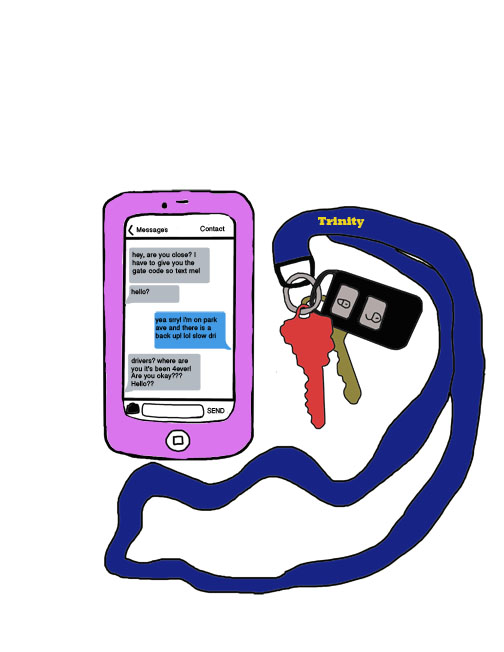On October 1, Florida enacted a new law against texting while driving. The act of sending a quick “lol” from behind the wheel will now be treated as a serious violation. After years of countless accidents, fatalities and damage, Florida has finally brought a sense of peace to roads like Aloma Avenue.
With social media in the palm of our hands, it’s hard not to “like” a status or respond to a quick text. People everywhere are finding it hard to spend ten minutes away from their cell phones and will go to any extent to type out a hashtag. Because of this digital attachment, Floridians have found themselves checking their phones in class, at work, and sadly, in their cars.
Teenagers are the top offenders of the fatal act; their numbers are increasing daily. In a recent survey conducted by the American Automobile Association, more than 46% of teens have texted while driving. Last year alone, nearly 500,000 crashes reportedly involved distracted driving. The act of sending a “haha idk” on Tuskawilla Road increases the likelihood of a crash by 23 times. This study also showed that texting behind the wheel has become just as dangerous as driving while intoxicated. So is the snapchat worth it?
I’ll be the first one to admit that Saints are not immune to this adolescent curse. I can’t count how many times I’ve seen the glowing aura of an iPhone screen from behind a student’s wheel. How can we be leaders in our society if we can’t be leaders on campus?
“I am certain having driven in front of and behind TPS folks that they are texting,” said Steven Garnett, the Students Against Destructive Decisions club sponsor. “I’d speculate that half of the parents or students are texting while driving.”
During the month of October, the SADD club spread awareness of the dangers of texting while driving.
“Hopefully this new law will lead to a greater knowledge about the effects of texting while driving for the community and lead everyone to practice safer driving habits,” said senior Christina Marchena. This campaign will hopefully put the brakes on teen crash patterns and inform Saints to become better drivers.
As the new law makes its mark on Floridians, we can only hope to see progress on the roads. The violation of texting while driving is currently classified as a second offense. In other words, no cop can pull you over for texting unless you run a red light or commit any other violation. Therefore, as long as you can drive with your knees and stay under the speed limit, you’re free to go about your Candy Crush business with ease, according to the law.
Not only is the violation a second offense, but the fine for the crime is a mere $30 (or about three lunches from the Grille).
“[The] fine is not harsh enough,” Garnett said.
This tiny fine leaves an ineffective barrier for avid texters, especially those on campus. If students are barely threatened by the risk of death, a $30 fine won’t scare them out of their texting habits. By dancing lightly around the problem, Florida has allowed room for forgiveness for such a risky ride.













